
This is what happens when you burn a candle at both ends!
Make a pivot, light both ends, and the burning and dripping wax creates oscillations. In our limited experience, pretty irregular and chaotic. It’s really quite cool.
Discoveries in the Physics & Astronomy shop | Science, curiosities, and surprises

This is what happens when you burn a candle at both ends!
Make a pivot, light both ends, and the burning and dripping wax creates oscillations. In our limited experience, pretty irregular and chaotic. It’s really quite cool.
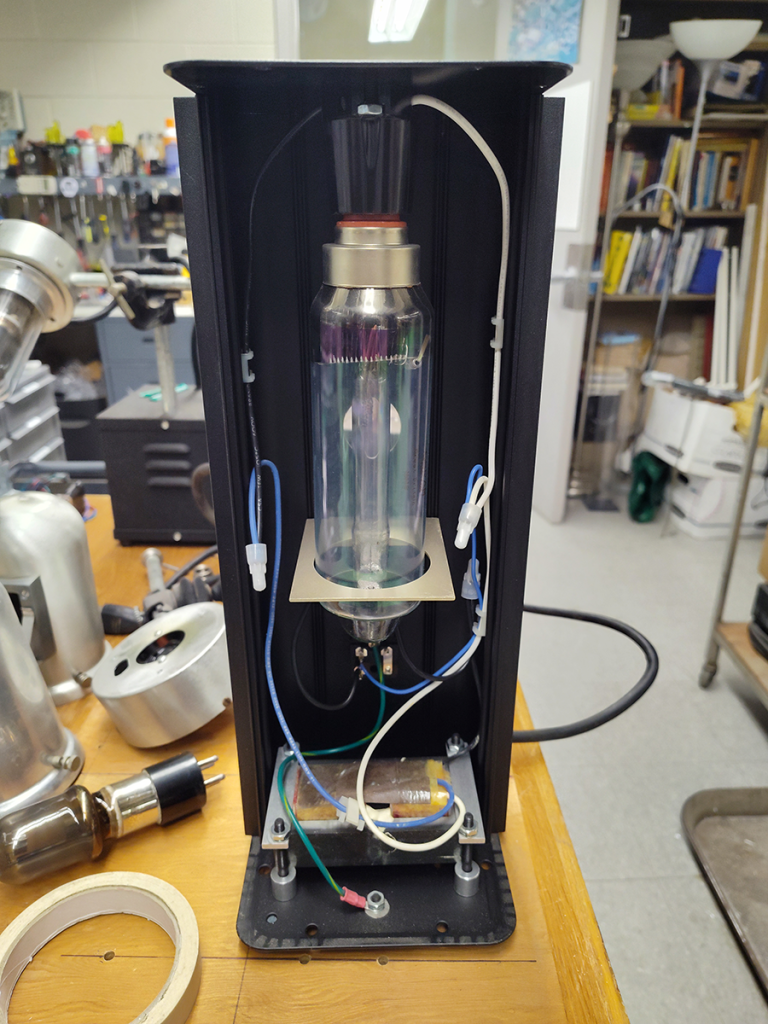
Here, our more modern sodium light sources, using a clever design that enabled a reduction from the minimum 35W to as little as 18W in 1977. Cool, yeah?
Unfortunately, Philips finally bowed out of the low pressure sodium lamp game in 2019, mean we’ve got these dinosaurs running for as long as we can scour spare lamps online. Once the supply’s gone, it’s gone.
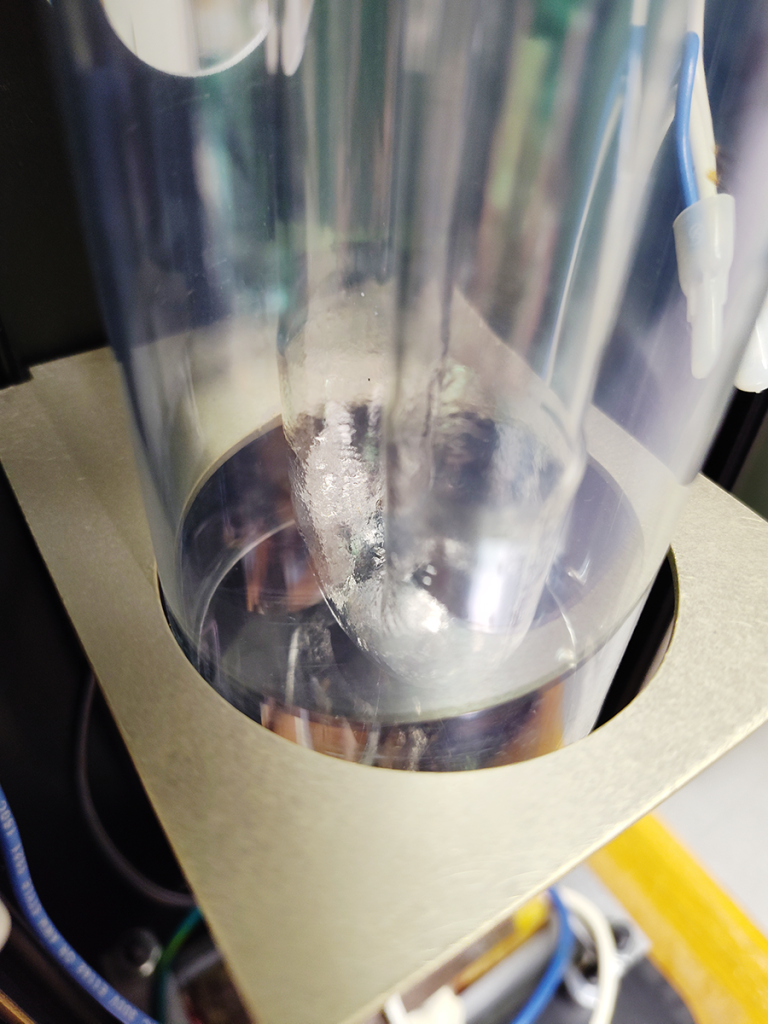
Hey, look! Sodium metal! Highly reactive, so it’s inside with a mixture of 99% neon and 1% argon, neither of which deigns to react with, well, anything. That’s why, when it starts up, we see a purplish glow from the noble gases before tube reaches 260°C and vaporizes the sodium. After that, it’s an intense monochromatic yellow-orange that’s hard to look at.
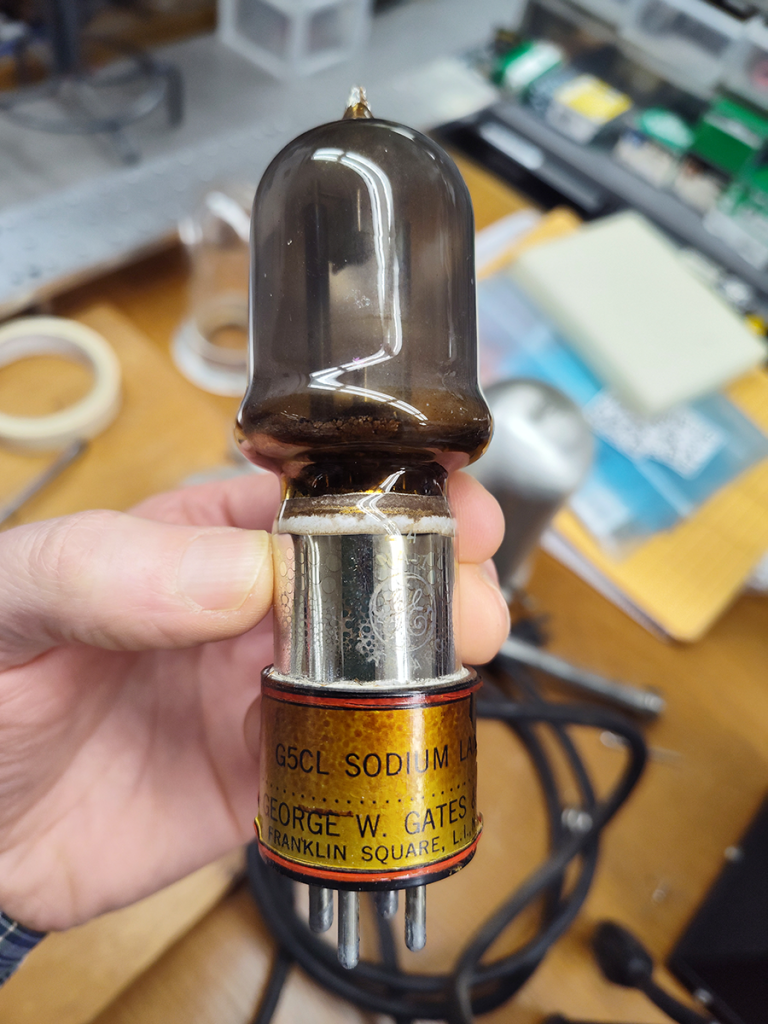
Remember the old, aggressively-yellow street lighting that pre-dated LEDs, ceramic metal halide, and high pressure sodium? Turns out it’s very useful for physics, as the two strong emission lines near 589nm are handy for various experiments.
The lamps themselves are fairly tough, and the ballasts that operate them even more so. But, eventually, they burn out.
General Electric ceased production on these lamps back in 1972. So, no, sorry, replacements are not readily available.
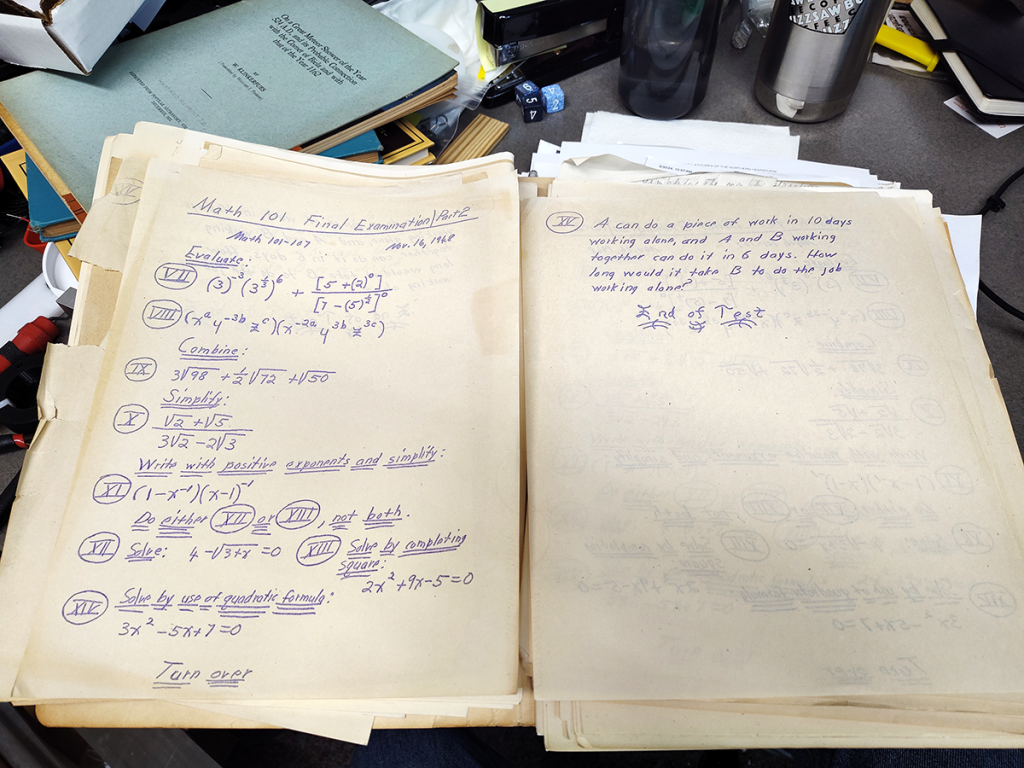
It’s part two of our Math 101 algebra final!
Someone really likes to underline for emphasis. They did not want the students to miss that the quadratic formula would be essential for solving 3x2 – 5x + 7 = 0.
Of course, nothing’s as charming as the wiggly, fancily-underlined “End of Test” text. Right?
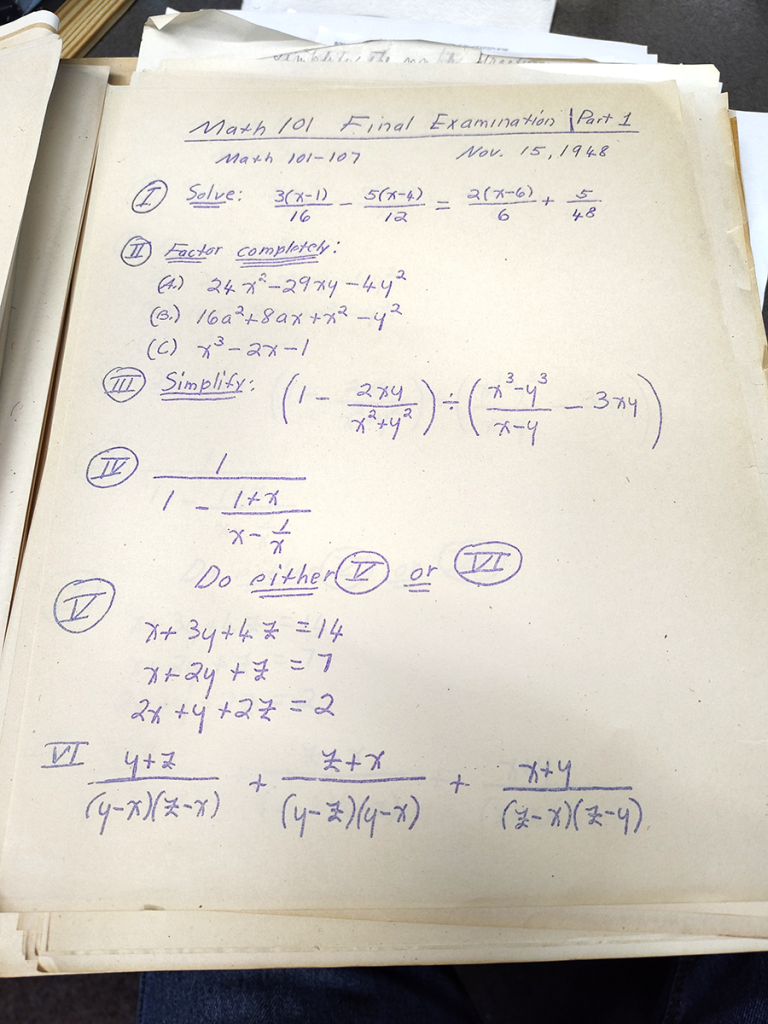
Astronomy, here and elsewhere often under the Physics umbrella, was once part of the Mathematics department at Bucknell. Occasionally, we’ll stumble across some old files in the Observatory that have been yellowing gracefully for decades. Like this two-part final exam from Math 101. Algebra!
Of note for context: this old exam – November 15th, 1948 – waited patiently in a filing cabinet at the current Observatory, built in 1963. In all likelihood, it sat in a folder in the old Observatory for thirteen years, transferred to Tustin Gym for a time, and then quietly continued to be forgotten in a new building until some tech decided to clean the place up a bit.
Who doesn’t love finding curiosities in purple ditto ink?